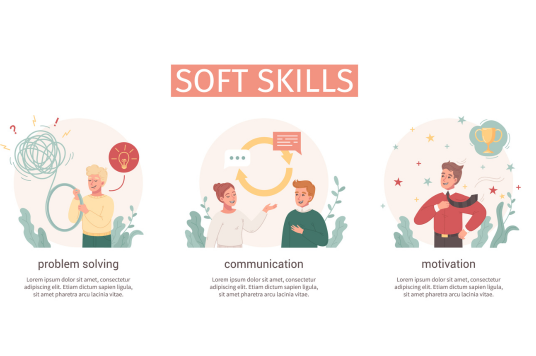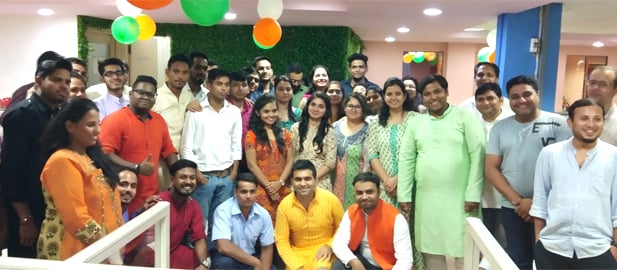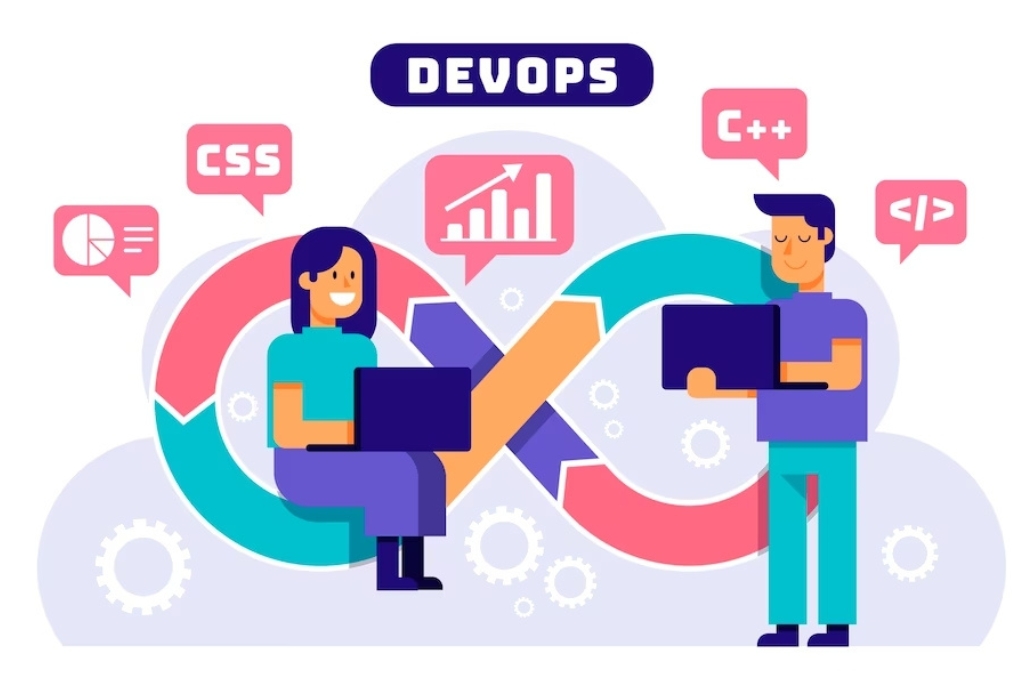The US Bureau of Labor Statistics expects the demand for software developers to grow 21% by 2028, as compared to an average of 5% for all other jobs.
Every company today needs software developers.
Startups are searching for fresh web developers to get their ideas off the ground, while large enterprises are always hungry for software programmers to go beyond the competition in the tech race.
If you also belong to any of these groups, you’ve likely realized how hard it is to hire a developer who may fit your project’s needs. Not only companies are running short of specialized tech talents, but the developers who can do the job right are spread too thin around the world, making it difficult for companies to form a good team of top developers and programmers.
In this blog, you will learn the steps about hiring the best software developers for your business.
Let's get started.
TL;DR
- You want to hire the top software developers as they can draw the line between average and excellence.
- Due to the abundance of collaboration services and tools accessible today, development teams can work in remote locations without sacrificing efficiency or compromising the product.
- This blog explains about efficiently hiring top web developers and how partnering with an outsourcing company can help your development team.
- Classic Informatics is a top web development company that has a global presence, and a focus on client satisfaction making it a reliable and experienced partner for hiring software developers.
- If you are planning to partner with Classic Informatics to hire the best development teams then request a quote or mail us at hello@classicinformatics.com.
How To Hire Web Developers For Your Business?
Whether you're considering onboarding a qualified developer as a freelancer or outsourcing software development, it's crucial to keep these key points in mind when hiring developers to assess their compatibility with your particular project.
Seek Intellectual Superiority:
It's often said that if you're the smartest person in the room, you're in the wrong room. When hiring developers, prioritize intelligence, specifically in problem-solving abilities. While creativity and technical knowledge are essential, the capability to navigate challenges and devise unique solutions is what propels software development forward.
In the quest for software developers, it is imperative to seek intellectual superiority. Beyond technical proficiency, the ability to solve complex problems, think critically, and exhibit a passion for continuous learning is crucial. Emphasizing intellectual prowess ensures that the developers not only excel in current technologies but also possess the adaptability to thrive in the ever-evolving landscape of software development.
This approach fosters a team culture of innovation and resilience, essential for tackling the challenges of modern software engineering. Given the continuous emergence of new issues during web development, it's essential to find individuals who can adeptly navigate problems and uncover solutions that may elude most, including yourself.
Emphasize Flexibility and Diverse Software Exposure:
Given the vast landscape of programming languages and tools, expecting expertise in everything is unrealistic. Look for developers who embrace an open approach to their work, displaying flexibility and familiarity with various software environments.

A candidate's ability to navigate various programming languages, frameworks, and technologies showcases adaptability and a holistic understanding of the software ecosystem. Prioritizing developers with a diverse skill set not only enhances their problem-solving capabilities but also equips them to tackle a spectrum of projects.
This approach fosters a dynamic and versatile team, well-prepared to address the multifaceted challenges that arise in the ever-evolving landscape of SaaS product development.
Prioritize Communication and Collaboration Skills:
The saying, "If you want to go fast, go alone; if you want to go far, go together," emphasizes the importance of collaboration. A great developer not only excels individually but also contributes effectively to a team. Strong communication skills are vital for seamless collaboration, especially in agile development where teamwork is integral to success.
Effective communication is key to successful collaboration. Look for developers who can articulate their thoughts clearly, ask relevant questions, and listen actively.
Tech environments are dynamic, and developers need to adapt to evolving technologies and methodologies. Assess a candidate's ability to learn and adapt to new challenges.
Developers must pay close attention to details to produce high-quality code. A small error can have significant consequences, so candidates with a keen eye for detail are valuable.
Consider how well a candidate aligns with your company's values and culture. A positive cultural fit promotes better collaboration and contributes to a healthier work environment.
Seek developers who have a passion for learning and staying updated on industry trends. A commitment to continuous improvement is a valuable trait in the ever-evolving tech landscape.
Value Creativity:
While technical and theoretical knowledge is essential, creativity is the driving force behind innovation in software development. Look for individuals who can think outside the box, quickly generate ideas, and bring a fresh perspective to the team. Diversity in backgrounds can contribute to a wider and more innovative approach to software development.
Identify the specific programming languages and technologies relevant to your project. A developer's proficiency in languages such as Python, Java, JavaScript, C++, or others is critical especially if you're hiring a Python developer.
Assess the developer's experience with relevant frameworks and libraries. Knowledge of popular frameworks like React, Angular, Django, or Flask can be indicative of a candidate's expertise.
Evaluate the candidate's problem-solving skills and ability to write efficient, clean, and maintainable code. Pose real-world coding challenges or review their past projects to assess their problem-solving capabilities. For a comprehensive list of questions that can help gauge critical thinking and problem-solving skills, check out our article on WordPress LMS plugin.
Prioritize Clean Coding Practices:
Despite the complexity of the software development industry, the best JavaScript developers make it look easy by writing clean code. Clean coding not only enhances the quality of products but also ensures flexibility during sprints and facilitates maintenance and updates. Hiring individuals with a commitment to clean coding is crucial for the efficiency and effectiveness of your team.

Include coding assessments or technical interviews to evaluate a candidate's problem-solving skills. Real-world problem-solving scenarios can provide insights into their approach to coding challenges.
Assess the candidate's understanding of algorithms and data structures. Strong algorithmic thinking is essential for optimizing code and solving complex problems efficiently.
Embrace Talent over Experience:
While experience holds value, prioritize talent when hiring developers. If a candidate demonstrates technical proficiency, soft skills, and problem-solving abilities, consider giving less weight to their experience. Talent is a scarce resource, and fostering a culture that values innovation may benefit more from fresh minds capable of thinking outside conventional boundaries.
Consider candidates with experience in your industry. Developers with domain knowledge can better understand your business requirements and contribute more effectively to your projects.
Review the developer's portfolio to gauge the complexity and diversity of projects they've worked on. A well-rounded portfolio showcases adaptability and a range of skills.
Evaluate the candidate's experience working in a team. Communication skills, collaboration, and the ability to work effectively with others are crucial for project success.
Challenges in Hiring Software Developers
Facing numerous challenges, businesses globally leverage outsourcing to enhance their processes, particularly in software development. The evolution of technology prompts enterprises to hire skilled developers and seek adept tech leads for their development communities creating innovative web applications, cloud computing, and distributed systems. However, the task of hiring the best developers and the right resources proves to be intricate and time-consuming. Several obstacles hinder businesses from effective outsourcing, and the ensuing paragraphs outline some key challenges in managing and hiring software developers.
Limited Availability of Experienced Candidates
Companies across diverse domains acknowledge the scarcity of tech talent, despite the annual influx of numerous tech graduates. Matching the talent pool with freelancers and the requisite skill set remains a daunting task. As technology evolves rapidly, new programming languages, frameworks, and tools emerge.
Finding freelance full-stack developers with expertise in the latest technologies can be challenging. The industry's shortage of skilled web developers poses a challenge in securing an ideal software developer, with experience in vital development methodologies like Agile and DevOps services. Additionally, the competition among companies to hire top-tier developers further intensifies the skill shortage.
Screening and Identifying Talent:
Identifying candidates with the right technical skills and cultural fit is a significant challenge. Traditional hiring methods, such as resumes and interviews, may not be sufficient to assess a developer's coding abilities and problem-solving skills. Implementing effective coding assessments and technical interviews becomes crucial to accurately evaluate a candidate's capabilities. Referencing some good resume examples serves as a valuable benchmark for evaluating resumes and can help recruiters and hiring managers identify candidates who possess the required technical skills.

Retention and Employee Turnover
Once hired, retaining software developers can be difficult, especially given the competitive job market. Developers often receive frequent job offers, and if they feel unfulfilled or undervalued, they may easily switch companies. High turnover can lead to disruptions in project timelines, increased recruitment costs, and a loss of institutional knowledge to hire the best software developers.
Exorbitant Hiring Costs for Tech Employees
Recruiting the right resources for software development, particularly tailored to specific business needs, demands considerable time, effort, and financial investment. The hiring cost for software developers often exceeds budgetary constraints, given their demand for higher salary packages. This intricate and costly hiring process motivates companies to explore the option of engaging with software outsourcing companies to hire developers possessing the desired technical skills themselves.
Lack of IT Education Background
While many employees grow within an IT company, learning and adapting to the IT environment, they often lack formal IT education in software engineering or computer science. Though not a concern for all businesses, some deem a technical background in formal IT education as crucial when hiring good software engineers or software developers.

High Salary Expectations
Reports from TemplateMonster predict a 4.5% growth rate in top software developers'' wages, having already increased by 5% in 2020. This upward trend in salary expectations poses a challenge for businesses either hiring the best software developers, consultants, or freelance software developer for unique business needs, potentially straining budgets. Cost-effectiveness is a vital factor in outsourcing decisions for many businesses as it is impacted by the escalating salary expectations in the industry.
Cultural Fit and Team Dynamics
Beyond their technical expertise and skills, aligning a software engineer or developer's values, work style, and communication preferences with the company's culture is crucial. A lack of cultural fit can result in decreased team collaboration, dissatisfaction, and ultimately, reduced workplace productivity. Companies need to assess not only a software developer's technical abilities and prowess but also their ability to integrate seamlessly into the existing team.
Remote Work Challenges
The rise of remote work, accelerated by global events, has added a layer of complexity to the technical aspects of hiring. Evaluating a candidate's ability to work effectively in a remote environment, ensuring access to necessary tools and infrastructure, and creating websites to maintain team cohesion become a challenge. Establishing clear communication channels and project management strategies with dedicated teams is essential for success in a remote work setting.

Diversity and Inclusion
The tech industry has long struggled with diversity and inclusion. The challenge for tech talent is not only to attract a diverse pool of candidates but also to hire remote developers to create an inclusive environment that retains talent from underrepresented groups. Overcoming unconscious biases in the hiring process, promoting diversity in recruitment efforts, and fostering an inclusive workplace culture are ongoing challenges for many tech companies.
What To Avoid When Hiring A Developer?
Employers hire web developers and often make various mistakes on online hiring platforms that can adversely impact the efficiency and potential of new hires, particularly for the team. To maximize the value of your recent tech talent acquisition strategies, it is crucial to steer clear of the following pitfalls.
Inadequate Onboarding Practices:
Commencing a new or full project description to software engineers or developers in an ongoing sprint without proper explanation is a common misstep. While responsibility may lie with the project manager or scrum master, essential information should be clarified during or shortly after the final interview. Offering comprehensive support is an investment that yields enhanced productivity and morale, involving orientation on project goals, completed work, challenges, workflows, work culture, responsibilities, and providing appropriate project documentation.
Ambiguous Expectations
Relying on assumptions and imprecision is risky when businesses hire developers and programmers. Failing to communicate expectations clearly can lead to conflicting ideas within the engineering team, regarding tasks and priorities. Precise communication is paramount for higher-quality work, ensuring that new hires complement the existing team's abilities. Open discussions with the team and the new hire about expectations and potential contributions enhance clarity.

Deceptive Job Descriptions
Misleading job descriptions are not only unethical but also contribute to higher turnover. When employers promise one role and assign a completely different one, it creates dissatisfaction and diminishes trust. Transparency is key, and if full-stack developers don't precisely fit the desired profile, honesty about expectations is crucial. A good software developer must appreciate honesty, and it's better than relying on misleading practices.
Avoiding an Overemphasis on Money
While salary expectations can vary widely based on location and various other skills types, making hiring decisions solely based on compensation can be a mistake. Evaluating the return on investment (ROI) expected from the hire is crucial. A dedicated team along with any other employees have diverse motivations and needs. Beyond monetary considerations, factors such as work culture, team structure, project quality, and the company's sense of purpose play significant roles in retaining custom software development talents.
Rushing the Hiring Process
Hastily making a hiring decision due to urgent project needs can result in overlooking critical aspects of a candidate's suitability. Take the necessary time to thoroughly review resumes, conduct interviews, and assess skills to make an informed decision.
Neglecting Real-world Problem-solving
Relying solely on theoretical questions during interviews may not provide a true measure of a web developer who's problem-solving abilities. Incorporate real-world scenarios or coding exercises that simulate the challenges to hire freelance software developers, or a web developer who would face in the actual developer role.
Not Checking References
Skipping the reference-checking process can lead to hiring the best developers with misrepresented technical skills or work habits. Speak to previous employers or colleagues to gain insights into the candidate's work ethic database management, collaboration skills, and overall performance
Underestimating Soft Skills
Overlooking soft skills such as communication, teamwork, and adaptability in tech projects can result in challenges in team dynamics and project execution. A skilled developer whose ability to effectively communicate ideas, understand project requirements, and collaborate with others is essential for project requirements.

Disregarding Passion and Motivation
Failing to gauge developer skills for the field and motivation to contribute to the company's goals can lead to disengagement and a lack of commitment. Assess the candidate's genuine interest in the role and the company to ensure a long-term fit.
Neglecting Diversity and Inclusion
Ignoring the importance of diversity and inclusion in your hiring process can lead to a lack of diverse perspectives within your development team. Embrace inclusivity to keep talent platforms and foster more innovative solutions and a collaborative work environment.
Overlooking Continuous Learning
Technology is constantly evolving, and we hire developers who need to stay updated with the latest software applications and trends. Adopt risk free trial to hire developers who show resistance to learning new technologies or lack a commitment to continuous improvement.
Benefits of Hiring Remote Developers
Cost Effective
Operating a savvy business often revolves around the central idea of cost savings. Employing in-house developers can prove to be a costly affair, entailing expenses related to training, and infrastructure, and dealing with a high turnover rate that necessitates frequent recruitment and training endeavors. This creates a recurring cycle that can be both time-consuming and frustrating for businesses.
Contrarily, opting for remote developers can offer a more cost-effective solution by eliminating the need for extensive training, infrastructure investment, cloud computing, and other associated overheads. This streamlined approach not only conserves time and resources but also allows businesses to concentrate on core activities, providing a sustainable and economical path for long-term growth.
Constant development
The strategic hiring of remote developers from diverse global locations can significantly enhance productivity and expedite project completion. The dispersed geographical locations and varying time zones of remote freelance software developers enable companies that hire mobile app developers to maintain a 24/7 work schedule, leading to heightened efficiency and increased profitability for multiple clients.
The flexibility inherent in remote work contributes to a healthier work-life balance for many freelance software developers and remote developers, fostering greater job satisfaction and successful project outcomes.
Access to the global talent pool
Another advantage of embracing a remote workforce lies in the access it provides to a vast global tech talent pool. In the face of escalating demand for skilled developers and tech talent across various industries, identifying qualified candidates locally can be a time-consuming process. In this scenario, hiring a dedicated team of remote developers and tech stack enables companies to tap into a worldwide community of highly talented professionals, facilitating improved work outcomes.
Reduce recruitment cost
Cost efficiency is further underscored by the reduction in recruitment expenses associated with hiring remote app developers or freelance web developers, as compared to establishing an in-house mobile app development or web development team. The latter entails numerous costs such as recruitment, training, visa sponsorship, health insurance, travel expenses, bonuses, and paid leave – many of which are alleviated by opting for remote or freelance web developers only.
Enhanced productivity
Remote work also fosters enhanced productivity for backend developers, acknowledging that not all top software engineers and developers can thrive within the confines of a traditional 9-to-5 workday. The heightened productivity of remote developers and front-end developers is attributed to their ability to work in environments that suit them best, at times and places where their focus is optimal. The flexibility of working hours, a hallmark of remote work, becomes a catalyst for productive results hire the best software developers.
Reduced infrastructure cost
The financial benefits extend to reduced infrastructure costs. The significant expenses tied to maintaining visually appealing and technologically advanced workspaces are alleviated when hiring remote freelance developers. The need to invest in physical office spaces, IT systems, and office supplies to hire freelance developers, and to hire android app developers, is diminished, resulting in substantial cost savings.
Define What Type of Developer You Want to Hire
After reviewing the information above, it's crucial to delve into specific considerations during the hiring process. Developers possess diverse skill sets and capabilities, necessitating a clear understanding of their distinctions to effectively assess their potential impact on your project. If you lack familiarity with software development practices, pay particular attention to this section, as it outlines fundamental differences in technical expertise.
- Frontend Development: Specializing in the user-facing aspects of software applications, frontend developers focus on visual interfaces, program aesthetics, and layouts. Common frontend programming languages include JavaScript, React, HTML, and CSS.
- Backend Development: Backend developers are responsible for the logic that enables software applications to function, involving tasks like database management, caching systems, and pipelines. Common backend development programming languages include Python, C++, SQL, PHP, Ruby, and ASP.NET.
- Full-Stack Development: Full-stack developers possess expertise in both frontend and backend development, making them versatile across various programming languages and project types. They are often considered "jack-of-all-trades."
- Web Development: Web developers specialize in creating websites and web applications, with skills extending over different areas of frontend and backend development. Common web and mobile app development languages include Java, Go, Ruby, C, and Swift.
- Product Development: Product developers focus on the conceptualization, design, and implementation of new products. Their primary goal is to bring innovative ideas to life, creating tangible and market-ready solutions.
- E-Commerce Development: E-commerce developers specialize in creating, implementing, and maintaining online platforms for conducting electronic transactions. Their focus revolves around various aspects of e-commerce development to ensure seamless and effective online shopping experiences.
- Mobile Development: Focused on designing, developing, and maintaining applications for mobile devices, mobile developers work with many programming languages, such as JavaScript, Kotlin, C#, Python, and Swift.
- UX/UI Designers: While not always categorized as developers, UX/UI designers play a vital role in software development by creating engaging and user-friendly designs to enhance the software's usability.
- Data Science Developers: Working on solutions for data collection, analysis, and generating actionable insights, data science developers excel in analytics and statistical analysis. Common languages include Python, Scala, R, SQL, and Julia.
- DevOps Services: DevOps engineers manage the relationship between development teams and company operations, collaborating to build, implement, and maintain software and distributed systems using agile methodologies.
- QA and Testing: Quality assurance and testing engineers are responsible for ensuring that a software product meets its objectives by continually stress-testing the software to identify bugs, flaws, and areas for improvement.
- Support Engineering: Focused on maintaining and supporting software products for optimal functionality, support engineers play a vital role in large-scale projects that require constant monitoring and maintenance of activities.
- MVP Development: Businesses benefit from MVP (Minimum Viable Product) development as it provides a cost-effective and rapid way to introduce a functional prototype to the market. By releasing an initial version with essential features, businesses gather valuable user feedback, minimize development costs, and swiftly iterate to meet customer needs, ensuring a more successful and refined final product.
- CMS Development: CMS development streamlines content workflows, enhances collaboration, and ensures timely and seamless content updates, empowering businesses to maintain a dynamic online presence and engage with their audience effectively.
Why Choose Classic Informatics To Hire Software Developers?
Opting for Classic Informatics to hire software developers is a decision grounded in a multitude of compelling reasons. With a proven track record of expertise in the software development arena, Classic Informatics brings a wealth of experience to the table, having successfully delivered diverse projects that underscore their proficiency.
The software developers at Classic Informatics exhibit a versatile array of skill sets, ensuring adaptability to various programming languages, frameworks, and technologies. The company's commitment to a client-centric approach shines through, emphasizing effective communication, collaboration, and transparency throughout the development journey.
Classic Informatics stands out for its dedication to innovation and the incorporation of cutting-edge technologies, fostering the creation of solutions that are not only effective but also forward-looking. Quality assurance is paramount in their development processes, ensuring the delivery of high-quality, bug-free software through meticulous testing procedures.
Known for its punctuality, the company is committed to delivering projects on time, enabling clients to meet their deadlines and launch products or solutions as planned. With a scalable and flexible approach, Classic Informatics caters to projects of varying sizes and complexities, adapting to evolving business needs.
Wrapping Up
As we've seen the process of hiring software developers involves numerous steps and considerations to identify the ideal candidates. Yet, the challenges extend beyond recruitment, encompassing the retention of talent and the critical need to continually bring on board the right individuals for sustained project scalability.
That’s why outsourcing software developers has become such a common practice today. By working with an experienced product development company like Classic Informatics, any organization can get immediate access to the best software developers, and stop worrying about anything related to sourcing, hiring, and retaining talent.





















.png)




